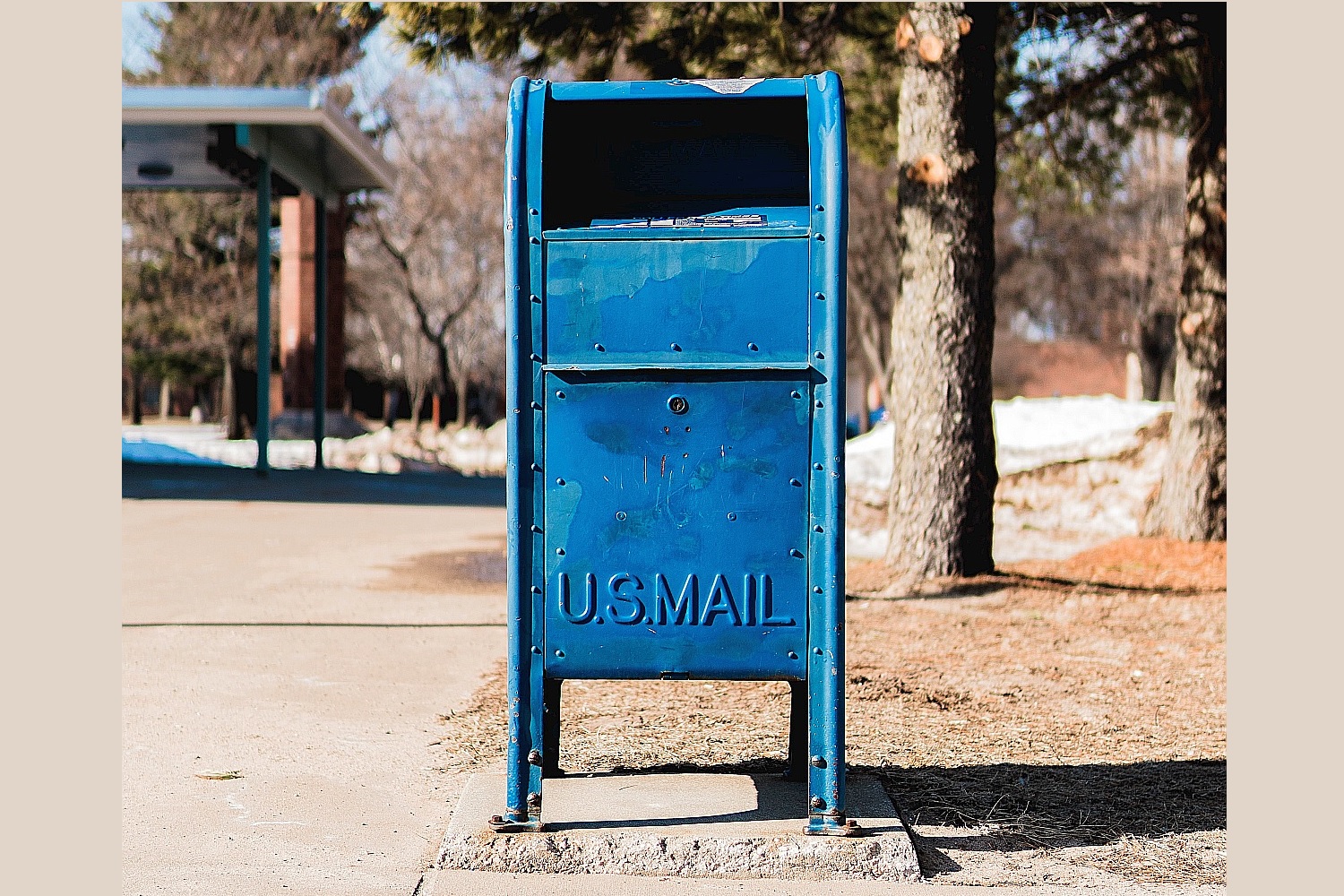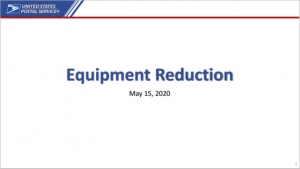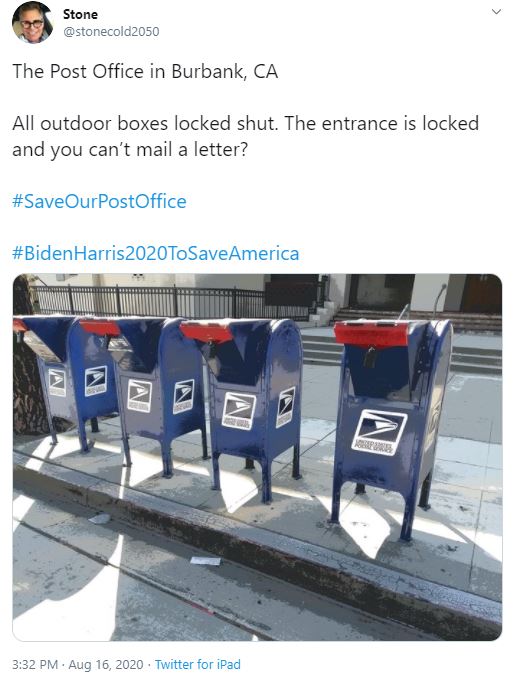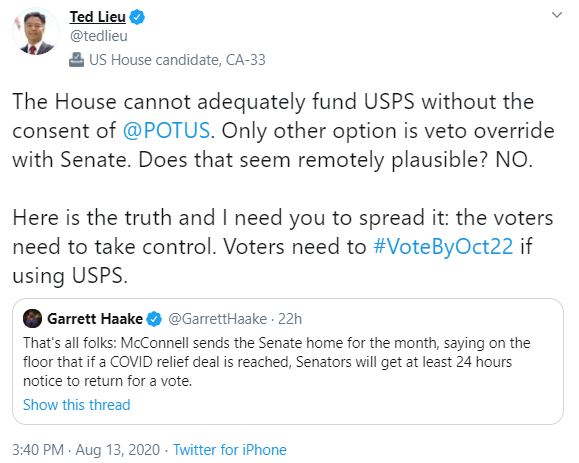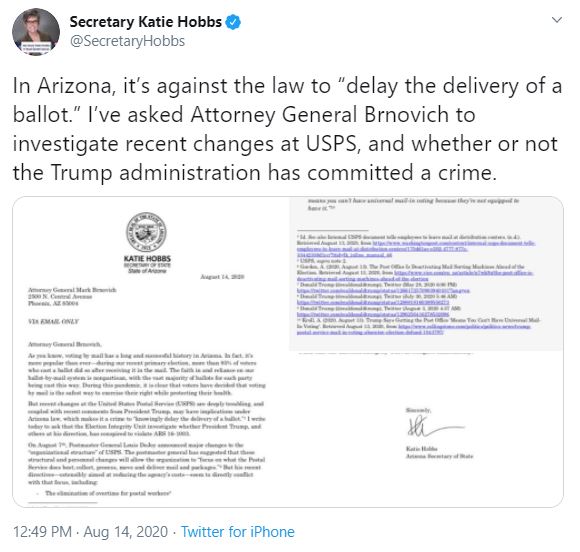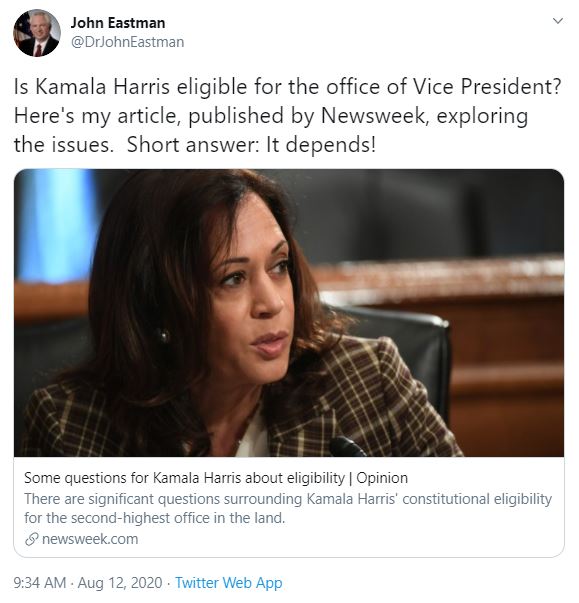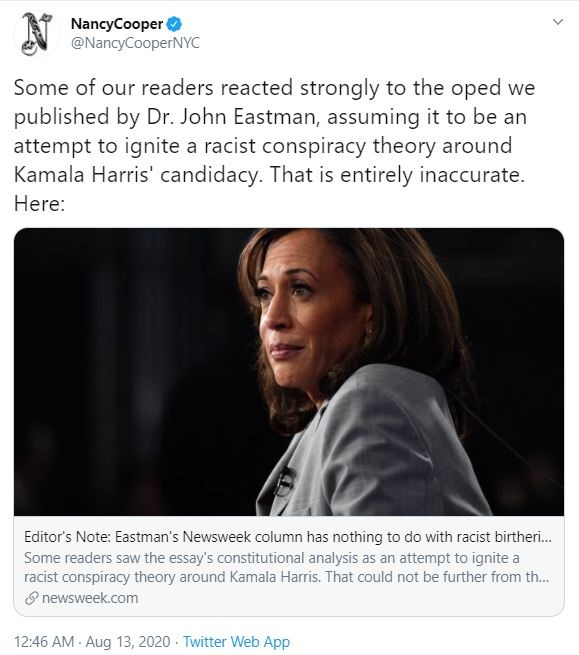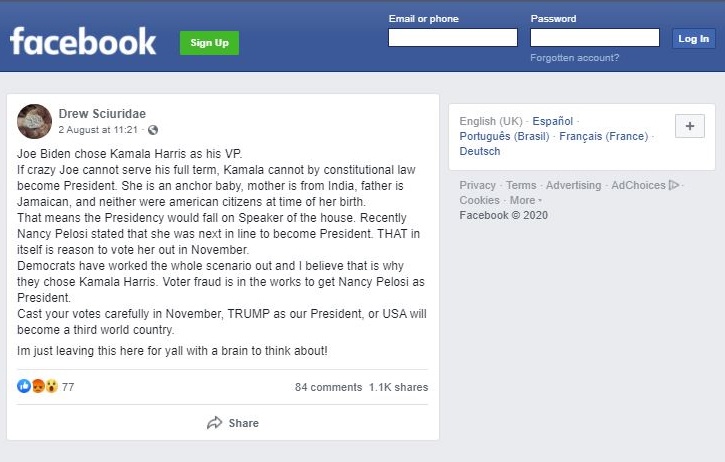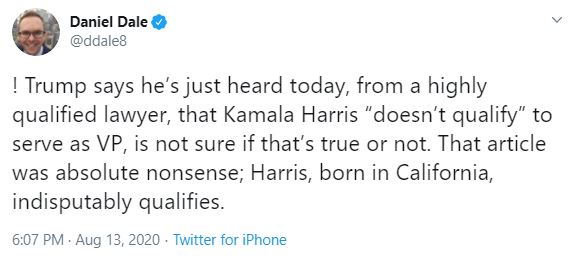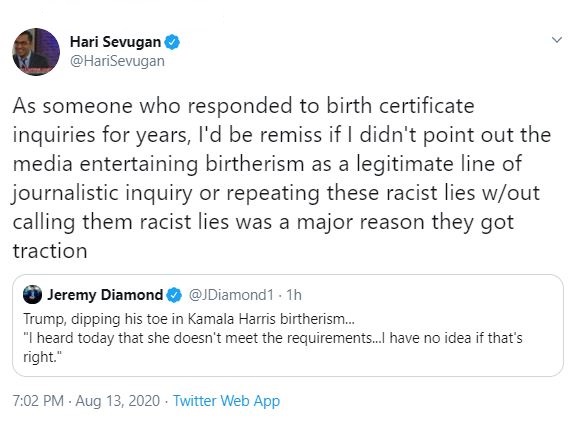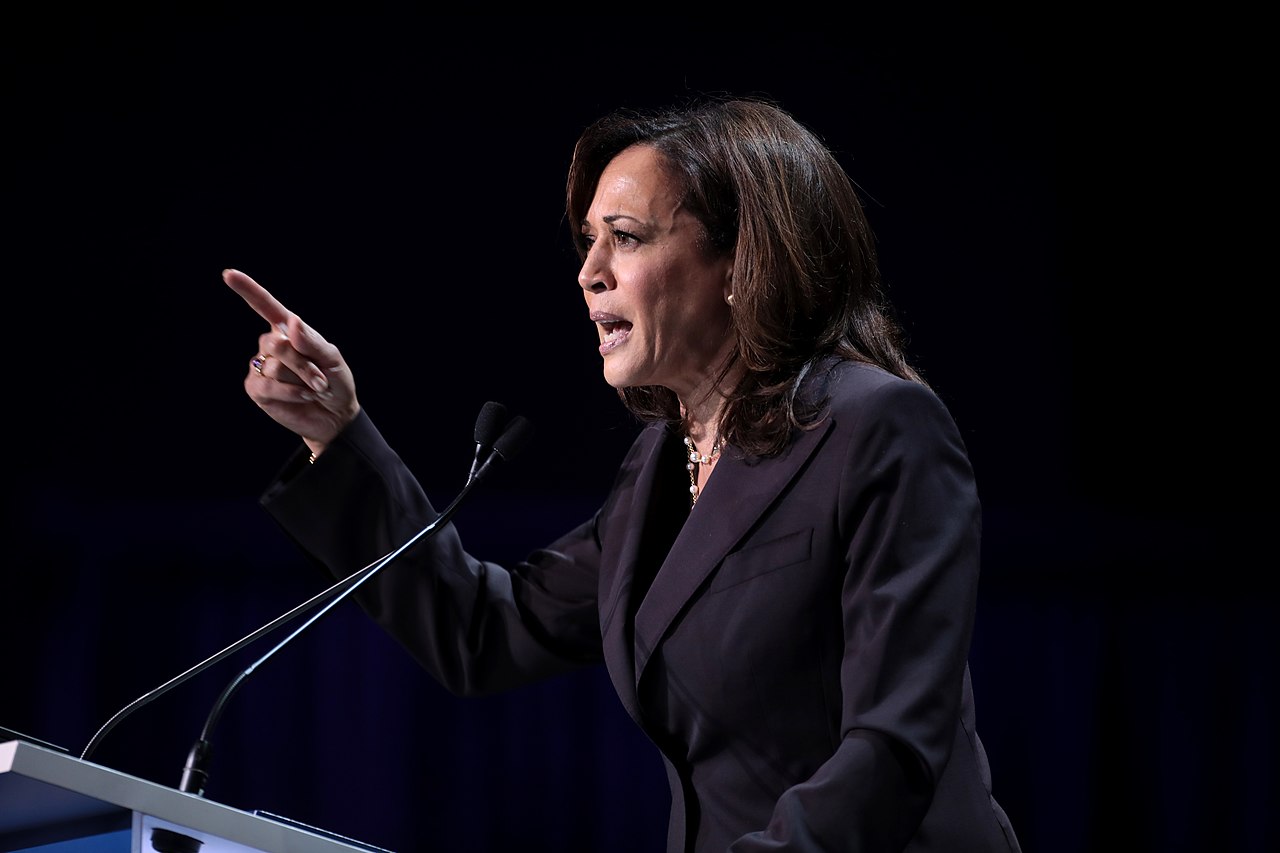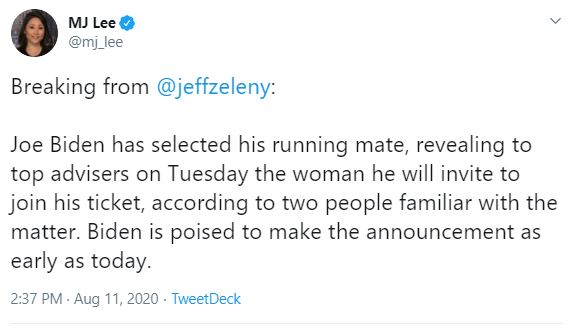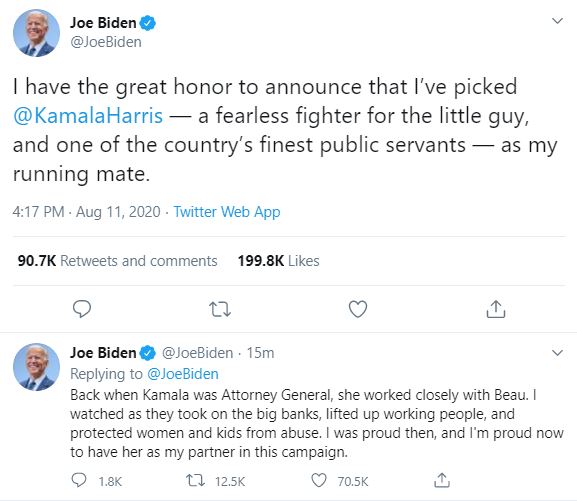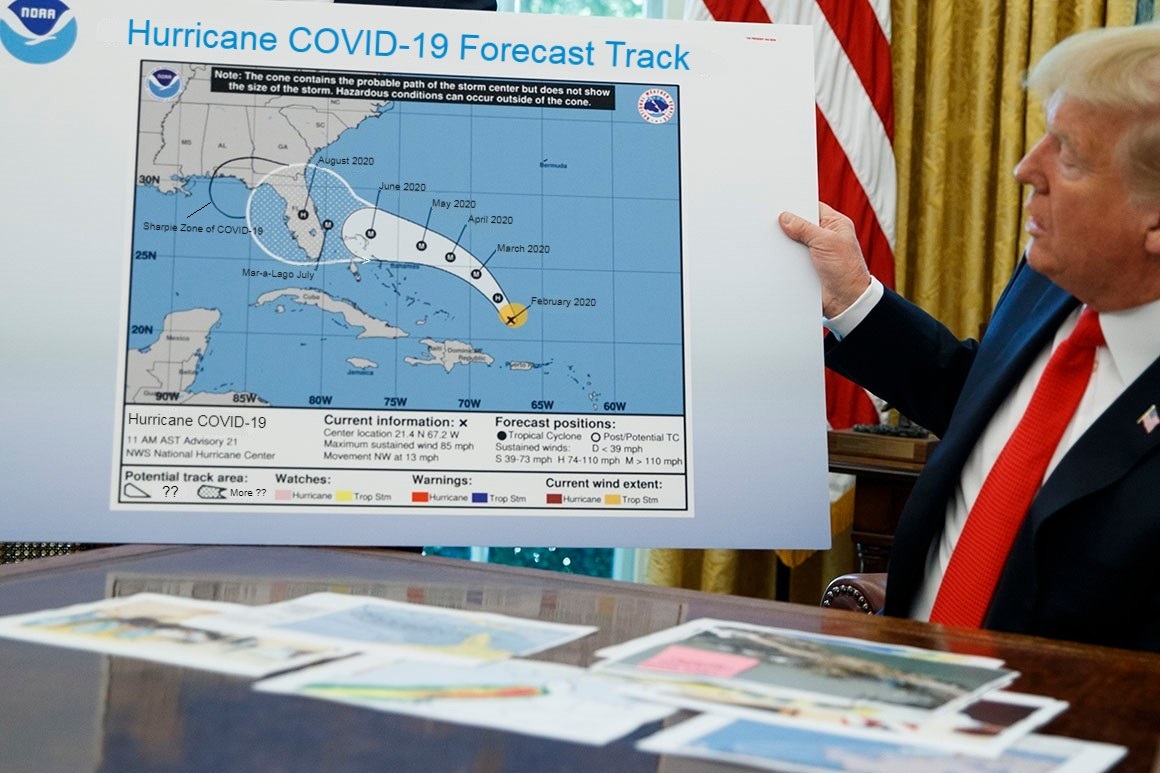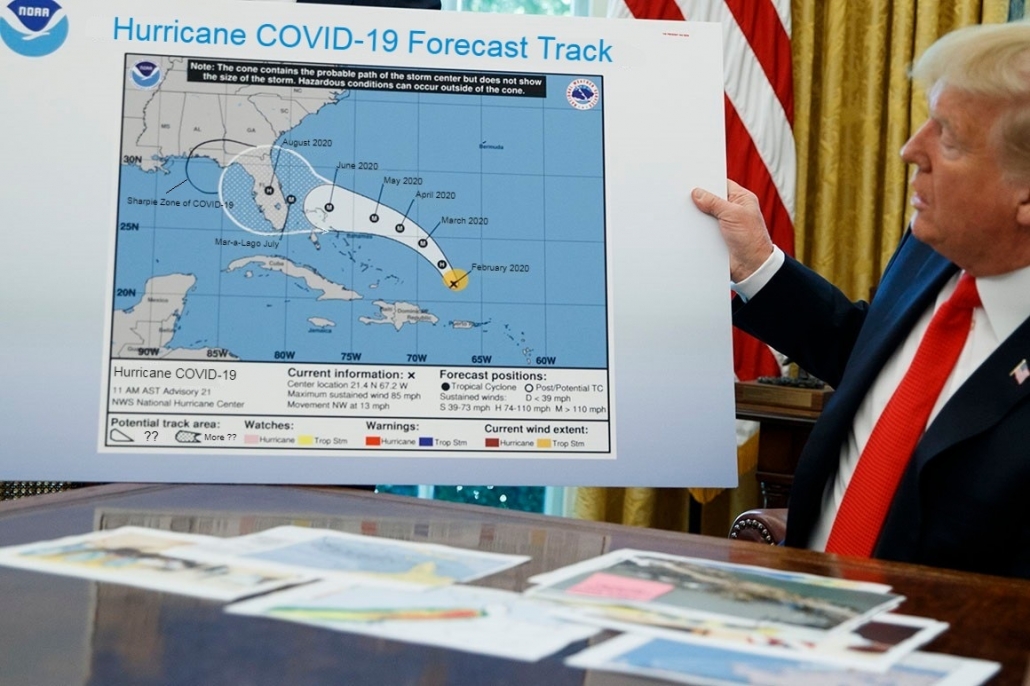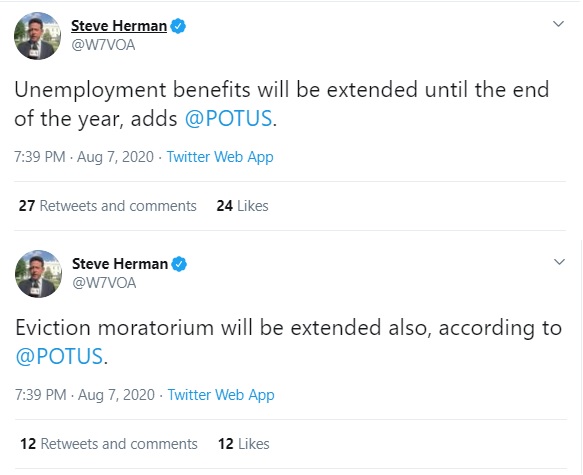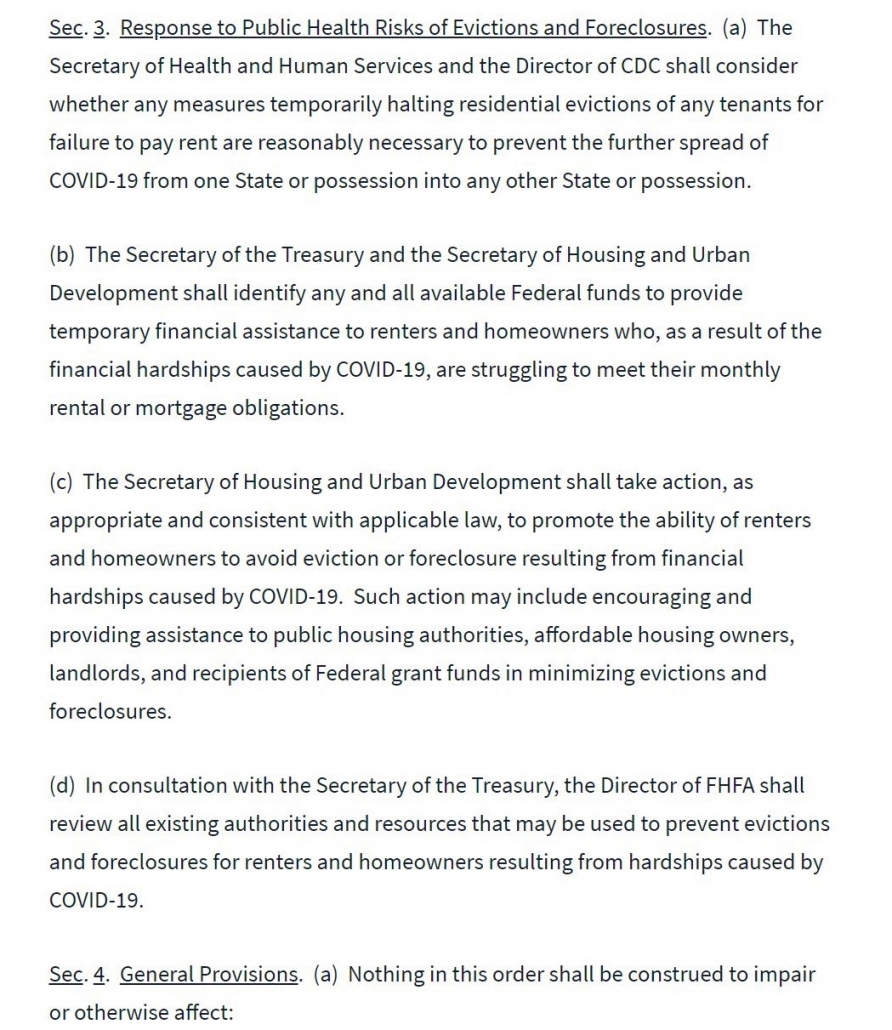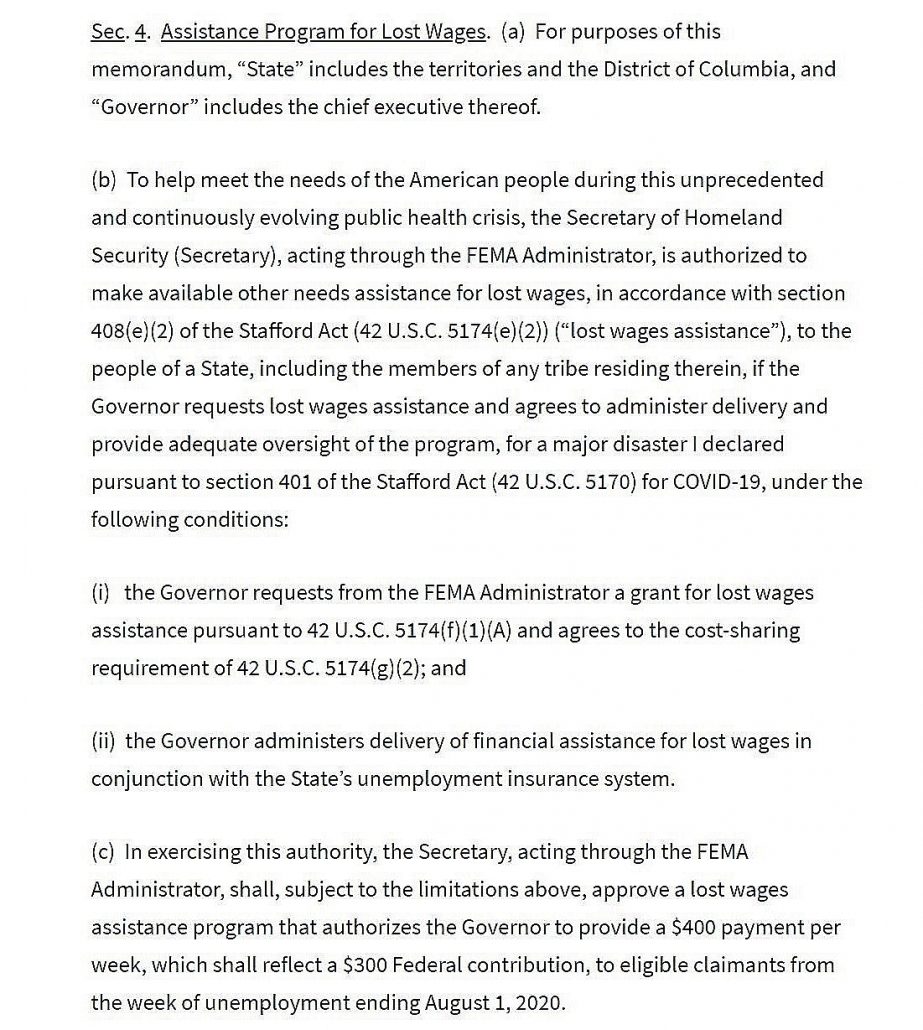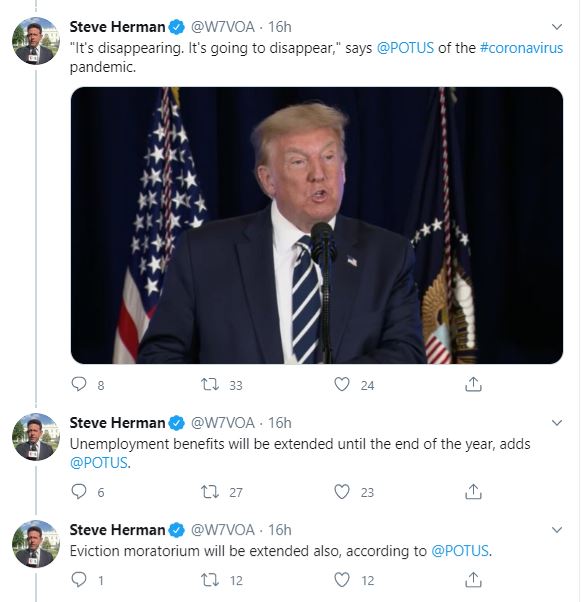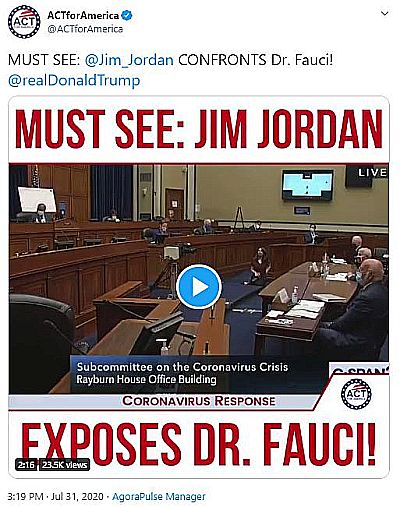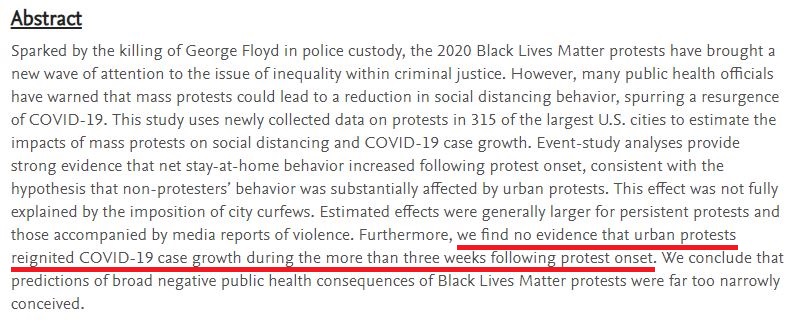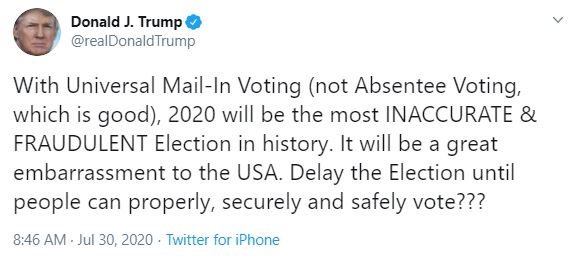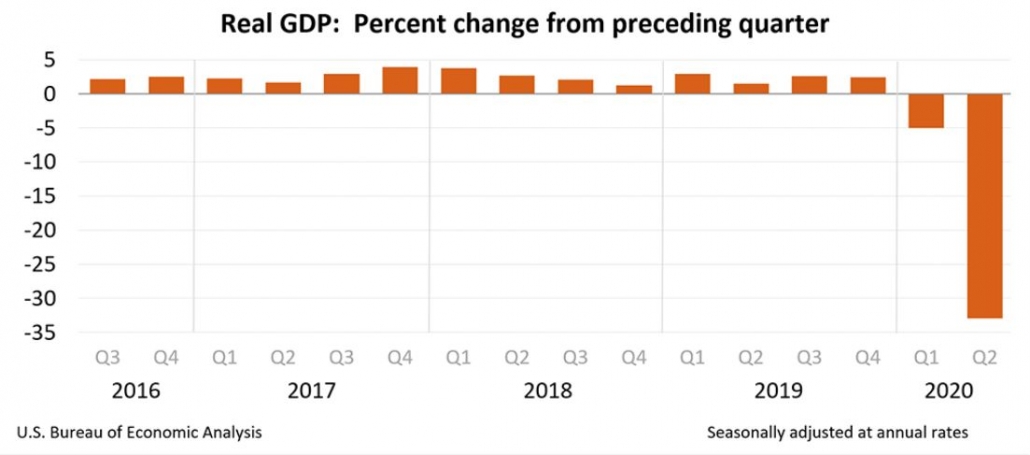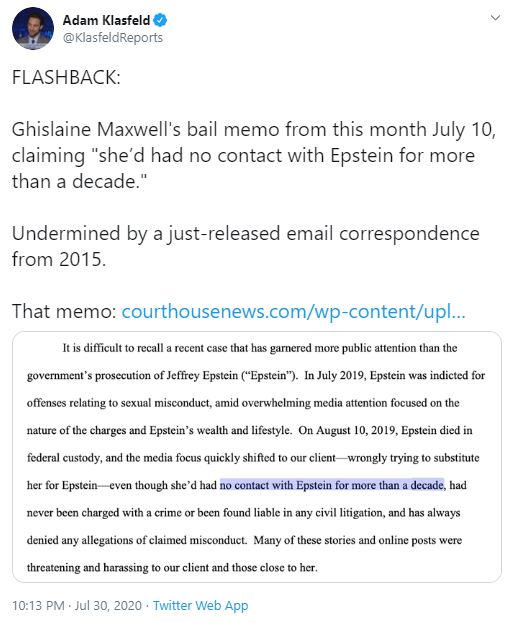Crowdsourced Timeline: Torching the USPS [Work in Progress, UPDATE-2]
[NB: Check the byline, thanks. Updates appear at the bottom of this post. /~Rayne]
Well now. This has been a day to beat all days, hasn’t it?
Who would ever have guessed — during the middle of a scandal in which a Trump donor+appointee engaged in dismantling the U.S. Postal Service to obstruct a general election and a Census — that U.S. Postal Agents with U.S. Coast Guard assistance would arrest a Trump advisor on a boat with a Chinese dissident business person?
It’s mind boggling and delicious at the same time.
Also today: the NAACP Legal Defense and Educational Fund and Public Citizen filed a lawsuit against the U.S. Postal Service and current Postmaster General Louis DeJoy, arguing changes made to the USPS system violate federal law, disrupting mail delivery and may cause voter disenfranchisement this November.
I wrote that DeJoy’s “equipment reductions” and staffing changes may have violated 18 U.S. Code § 1701.Obstruction of mails generally, as well as 18 U.S. Code § 371 Conspiracy to Defraud the U.S., and possibly 18 U.S. Code § 1346 Honest Services Fraud.
NAACP and Public Citizen argue DeJoy’s changes violate 39 U.S. Code § 3661 – Postal services by failing to obtain public comment first before finalizing and implementing changes, as well as 39 U.S. Code § 101(e) – Postal policy by failing to “give the highest consideration to the requirement for the most expeditious collection, transportation, and delivery of important letter mail.”
There’s a tidbit in the complaint which I hope the court addresses when it addresses relief:
17. The PAEA in 2006 established the Postal Regulatory Commission as “an independent establishment of the executive branch.” Id. § 501. “The Postal Regulatory Commission is composed of 5 Commissioners, appointed by the President, by and with the advice and consent of the Senate. The Commissioners shall be chosen solely on the basis of their technical qualifications, professional standing, and demonstrated expertise in economics, accounting, law, or public administration, and may be removed by the President only for cause. Each individual appointed to the Commission shall have the qualifications and expertise necessary to carry out the enhanced responsibilities accorded Commissioners under the Postal Accountability and Enhancement Act.” Id. § 502(a). “No Commissioner shall be financially interested in any enterprise in the private sector of the economy engaged in the delivery of mail matter.” Id. § 502(b).
Emphasis mine. DeJoy isn’t qualified to be a commissioner and should be removed.
And more today: nonprofit organization Citizens for Responsibility and Ethics in Washington (CREW) also filed a complaint with the Department of Justice against DeJoy today, asking for an investigation into DeJoy’s actions which will undermine voting by mail for Trump’s political benefit. CREW’s concerned that DeJoy did more than violate the Hatch Act:
Criminal law (18 U.S.C. § 610) [Hatch Act] prohibits anyone from commanding any employee of the federal government to engage in political activity. Another provision (18 U.S.C § 595) bars anyone “employed in any administrative position by the United States” from using, in connection with any federally-funded activity, their “official authority for the purpose of interfering with, or affecting, the nomination or the election of any candidate for the office of President.”
I’m waiting for an entity to sue the U.S. Postal Service and current Postmaster General Louis DeJoy for interfering with the delivery of Census forms which may yet be in circulation.
Senator Gary Peters has requested DeJoy appear before a Senate Homeland Security & Governmental Affairs Committee tomorrow. Let’s hope both ballots and Census forms come up in the hearing.
What might be helpful to both persons following the hearing tomorrow and the House Oversight Committee hearing on Monday, August 24, is a timeline of relevant events related to Louis DeJoy’s installment as U.S. Postmaster General, the appointments of the current USPS Board of Governors, and the changes DeJoy as ordered.
Here’s a partially constructed timeline. If there’s an event or item you believe is key, please share it in comments and I’ll insert it in chronological order.
~ ~ ~
October 16, 2016 — DeJoy donation: $25,000 to to American Crossroads, pro-Trump super PAC run by Robert Duncan, chair of USPS Board of Governors which appointed DeJoy. DeJoy was the Republican National Committee’s national deputy chairman and was North Carolina State Chair for Trump Victory during the 2016 campaign.
Early January 2017 — According to The Charlotte Observer, “DeJoy was one of Trump’s biggest N.C. donors and fundraisers. Records show he gave $111,000 to the Trump Victory Fund, a joint committee that split money between the campaign and party groups. He gave the Republican National Committee another $273,000 to help elect Trump.”
October 7, 2017 — DeJoy hosted a $25,000 minimum donation fundraising dinner for Trump at his home in Greensboro, NC.
October 2019 — Then-Postmaster General Marge Brennan announced her impending retirement.
December 10, 2019 — Treasury Secretary Steve Mnuchin met with David Abney, chairman and CEO of UPS, a competitor of USPS.
March 27, 2020 — Before COVID-19, a fundraising event was scheduled. The event hosted by DeJoy in Greenboro NC was intended to benefit Trump’s re-election campaign, the RNC and several state Republican parties, including North Carolina’s.
April 9, 2020 — Then-Postmaster General Brennan warned of a $13 billion revenue shortfall due “directly to COVID-19” and an additional $54.3 billion in losses over 10 years. USPS could “run out of cash this fiscal year” on September 30 if it did not receive federal funding.
May 23, 2020 — On or about this date, DeJoy was named national finance chairman for CLT Host 2020, the local organizing committee for the Republican National Convention. At the time the convention was scheduled to be held in Charlotte, NC.
January 15, 2020 — DeJoy donation: $150,000 to Trump’s campaign; $217,800 to the Republican National Committee.
January 16, 2020 — DeJoy donation: $10,000 to the North Carolina Republican Party.
February 7, 2020 — AG Bill Barr freezes campaign finance investigations.
February 12, 2020 — DeJoy donation: $35,000 to the National Republican Congressional Committee.
February 19, 2020 — DeJoy donation: $210,600 to Trump’s campaign.
April 1, 2020 — USPS Board of Governors adopts new mission statement.
April 2020 (date TBD) — DeJoy’s and spouse Wos’ joint charity helped found the Burr Center at Wake Forest University
April 9, 2020 — DeJoy donations: $35,000 to help re-elect Rep. Kevin McCarthy (R-CA), in November; $27,200 to the National Republican Congressional Committee; $5,000 to the Majority Committee PAC, which says on Facebook its goal is “holding Nancy Pelosi accountable and helping Republicans take back the House of Representatives.”
May 6, 2020 — DeJoy sworn in as Postmaster General and CEO.
May 14, 2020 — NC Senator Burr steps down as SSCI chair due to FBI investigation of his trade.
May 15, 2020 — House passed the HEROES Act containing $25 billion in funding for the USPS.
May 15, 2020 — USPS presentation, “Equipment Reduction” proposed plan.
June 15, 2020 — First day on the job at USPS according to DeJoy.
June 15, 2020 — Senate Minority Leader Chuck Schumer sent a letter to the USPS Board of Governors asking them for their communication with the White House about DeJoy’s appointment.
June 17, 2020 — American Postal Workers Union was told of plans to remove 671 automated mail sorters — more than 10 percent of the total — from operation throughout the country.
July 10, 2020 — USPS circulated to employees a document entitled “PMGs expectations and plan” outlining changes DeJoy would order, including elimination of overtime, letter carriers would limit the time and scope of their delivery routes, and certain customer service windows would close during lunchtime. A document also circulated reviewing the changes, entitled, “Mandatory Stand-Up Talk: All Employees,” subtitled, “Pivoting For Our Future” (Pivot Instructions).
July 13, 2020 — DeJoy announced a prohibition to overtime and any other measures local postmasters use to alleviate shortages of staff hours.
Mid-July 2020 — USPS Board of Governors responded to Sen. Schumer’s request; Schumer said they told him “much of the information I requested was confidential.” The board had used an executive search firm which refused to waive a nondisclosure agreement.
July 27, 2020 — Sen. Mitch McConnell (R-KY) introduced HEALS Act as counter to House bill HEROES Act; the senate bill contains no funding for the USPS.
July 29, 2020 — The Washington Post reported that in consideration for a $10 billion loan, DeJoy gave Mnuchin proprietary information about USPS’s private-sector contracts including Amazon, FedEx and UPS.
Late July, 2020 — Thomas J. Marshall, USPS’s general counsel and executive vice president, sent a letter to 46 states “warning that it cannot guarantee all ballots cast by mail for the November election will arrive in time to be counted,” according to a report by the Washington Post on August 14.
August 4, 2020 — U.S. mail delays contributed to ballots arriving too late to be completed or mailed back in
time to be counted Missouri’s August 4, 2020 primary election.
August 4, 2020 — Trump lied about speaking with DeJoy about the USPS.
August 5, 2020 — Sen. Schumer and Rep. Pelosi met DeJoy, along with Mnuchin and White House Chief of Staff Mark Meadows to negotiate both funding and the Pivot changes implemented by DeJoy.
August 6, 2020 — Sen. Gary Peters (D-MI) launched investigation into USPS delivery delays.
August 7, 2020 — First meeting of USPS Board of Governors DeJoy attended; results of third quarter, ended June 30, released. DeJoy also announced he had reassigned or displaced 23 senior USPS officials.
August 9, 2020 — Trump lied again about speaking with DeJoy about the USPS.
August 10, 2020 — DeJoy acknowledged in a USPS-wide memo that the Pivot Instructions “impacted our overall service levels.”
August 12, 2020 — Rep. Carolyn Maloney (D-NY) introduced the Delivering for America Act.
August 13, 2020 — Photos of removed postal equipment appeared online.
August 13, 2020 — DeJoy sent a memo acknowledging recent changes have “unintended consequences that impacted our overall service levels.” No effort was made to halt or reverse the changes set in motion, however.
August 13, 2020 — Trump admitted in an interview that “he opposes a $25 billion emergency injection sought by the U.S. Postal Service, as well as a Democratic proposal to provide $3.6 billion in additional election funding to the states,” according to the Washington Post. “They need that money in order to make the post office work, so it can take all of these millions and millions of ballots,” said Trump.
August 16, 2020 — Speaker Pelosi called for an emergency session of House to address the USPS crisis.
August 16, 2020 — Senator Gary Peters, ranking member of the Senate Homeland Security & Governmental Affairs Committee, called for an emergency hearing.
~ ~ ~
One thing that bothers me which hasn’t gotten much attention is DeJoy’s continuing relationship with XPO Logistics. Yes, it’s a conflict of interest that he continues to own a chunk of XPO’s stock while he is Postmaster and CEO of USPS since XPO is a USPS contractor and a competitor since it also carries shipments for USPS competitors.
CREW’s complaint is in no small part focused on this conflict as well as DeJoy’s marital assets tied up in hundreds of thousands of dollars in UPS and J.B. Hunt trucking company in addition to the tens of millions in XPO Logistics from which DeJoy had not divested.
But logistics services, especially freight haulers, have long been prone to corruption.
Take for example an indictment last October:
According to court documents, Leonid Teyf, 57, was part of a scheme where several trucking companies paid more than $1 million in bribes to the Utah FedEx ground hub manager.
Teyf, you’ll recall, is a Russian national and a business crony of Yevgeny “Putin’s Chef” Prigozhin; he was arrested in late 2018 because of a murder-for-hire plot. He had two homes in the Raleigh, NC area which were raided by the feds.
At the time of Teyf’s original arrest there was no indication in local news reporting there was anything more to Teyf’s offenses besides the murder-for-hire accusation and immigration law violations.
How did Teyf end up involved in logistics in Utah, connected with USPS competitor FedEx?
DeJoy may have zero relationship with Teyf, but DeJoy had been the CEO of New Breed Logistics (NBL) for decades. NBL customers included USPS.
DeJoy’s company was acquired by XPO Logistics in 2014 for $600 million; DeJoy continued after the acquisition on NBL’s executive management and board of directors until May 2018. XPO Logistics’ competitors included DHL, FedEx, UPS, and J.B. Hunt Transport Services — and surely must have included USPS to some extent, considering the expedited package handling companies are USPS’s competitors.
Did DeJoy’s business ever cross with Teyf’s, considering they were both in logistics, were both living in North Carolina less than two hours apart (DeJoy in Greenboro and Teyf in Raleigh)?
Are there other possible corrupt entities which have their fingers in the mix with DeJoy’s wrecking crew management style? Can you think of ways in which corrupt entities could manipulate this situation for their benefit?
~ ~ ~
Let’s try to keep this thread focused on the USPS.
.
UPDATE-1 — 9:05 A.M. ET —
The Senate hearing was scheduled for 9:00 am but the start appears to be running late. You can watch the video conference at:
CSPAN https://www.c-span.org/video/?474940-1/senate-hearing-us-postal-service#
NPR (embedded video at this link, scroll down) https://www.npr.org/2020/08/21/904366258/postmaster-general-faces-senate-as-controversy-persists-over-usps-cuts
It’s also being carried on some broadcast and cable networks.
A couple new items related to NC’s Senator Richard Burr have been added to the timeline. Was his vote for approval persuaded by contributions or contributions-in-kind?
UPDATE-2 — 10:30 A.M. ET —
One of our community members, Vicks, shared a link to an article in Supply Chain News about XPO Logistics. As I noted in comments, this company in which DeJoy retains a substantive investment interest had suffered from a downturn in business in late 2018-early 2019. The loss of business volume was sizable enough to warrant evaluating restructuring of the firm into smaller entities for divestment.
This may suggest why Treasury Secretary Steve Mnuchin is involved in the USPS scandal:
… XPO said it has hired high powered investment and legal firms to execute the processes. Those include Goldman Sachs and JPMorgan Chase as financial advisers and Wachtell, Lipton, Rosen & Katz as its legal adviser in the review process. …
Amazon’s own logistics company cut into XPO’s business at the same time Trump’s tariffs increased retail prices, reducing consumer demand. Rather than cutting costs and riding it out, or trying to find ways to spin off to Amazon, or trying to partner with Amazon’s competitors Target/Walmart/other, XPO looked at breaking up, thereby getting investment bankers involved.
Investment banks want to shake more cash out of XPO and its subs; they need to improve its prospects to do so. They want to find more business for XPO or its future spinoffs so they lean on Mnuchin to get dirt on competitor USPS which is a vendor to Amazon. UPS is involved because it wants to maintain its share of the market and it’s willing to help lean on USPS by providing its own take on expense allocation.
It’s corrupt as fuck. Mnuchin is favoring Wall Street investment banks and a Trump donor over a Constitutionally-mandated service. Fuck him.
Another question comes to mind about the drivers behind XPO’s fortunes: were companies which were adversely affected by the tariffs “picked off” by investment banks, possibly with Mnuchin’s help, to increase short selling opportunities and other forms of vulture capitalism?

